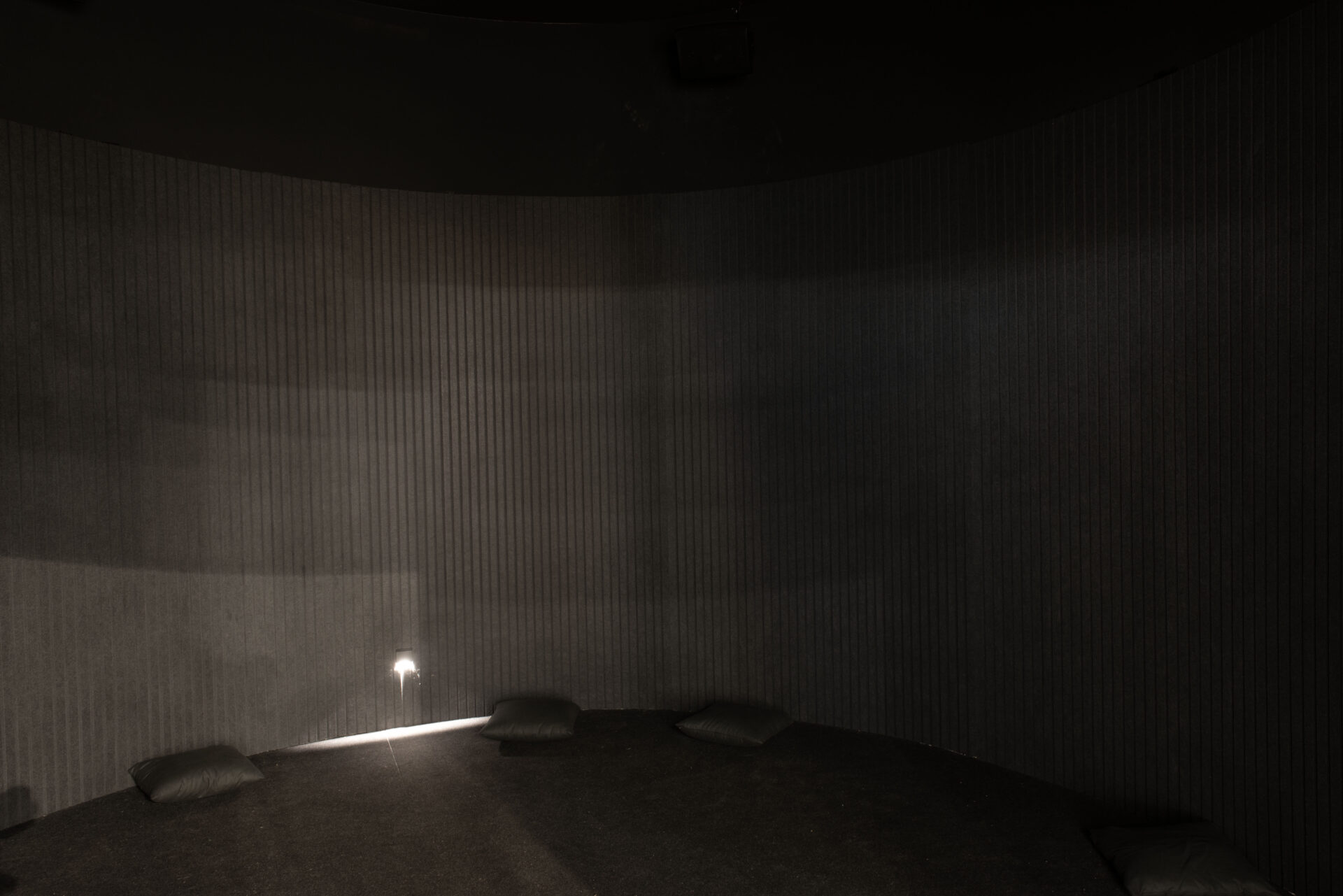
Stella do Patrocínio
Since little is known about Stella do Patrocínio, the words we use to talk about her, ever elusive, must be fabulated from the choreographies of the impossible. This is also how falatório [chatter], her body-vocalic practice of the word, requires us to connect with it – closing our eyes to hear the collapse of boundaries.
In every minute that passes in the 1 hour, 39 minutes, and 15 seconds of these recordings, Patrocínio operates a new fold in time, making those horizontal lines curve – from those drawn by the psychiatric asylum to those of literature – that stole her body, that wanted to steal her word. This scramble, until recently echoed by degenerative disorders, eugenics, the fetish of madness, poetry!, is now shattered by a chatter that recasts the very arena of guerrilla warfare. And she affirms: in spite of Eco, these are my terms.
Echo, the nymph forced
to repeat the words of
others. Or even Echo –
the white consensus.¹
Exu, movement,
life force – makes time and
message circulate.
In the conclave between Echo and Exu, the score is not settled, nor is the debt; but time spirals: crossed by forces of asphyxiation – the police, literature, domestic labor, electroshock therapy –, Stella do Patrocínio opens her Exurian chatter to the creation of escape routes and to retaliation, to aesthetic fabulation in the space of enclosure. And it is in this opacity that the chatter dances – not only poetry, nor testimony, nor any other classifications that, by themselves, are not enough:
If I tear that heavy one in half,
from half to half, slam
slam slam her on the floor, on the
wall, throw her out, in the mid-
dle of the bush, or on the other
side of the wall, it’s a malicious
little pleasure […] Kill the
whole [scientist’s] family. Let
them make a cart, dump them
all dead and go far away.²
Stella claims to be from the time of captivity, because she understands the fantasy-machinery that lies behind the incarcerations of Black bodies since her great-grandmother’s time. She says aloud: Clarice, Celeste, Meritempe, Luzadia, Adelaide – names we may never know much about beyond the affection with which she utters them.
In a language that wanders in a rhythmic pretuguês,³ syncopating the repetition of differences, Stella dislodges previous notions of what time, space, home, family, science, the body and its study are – and proceeds as far as possible. Her vocals contain vertebrae, and she constructs worlds of language to cast an exu-chatter that tears through time and kills, today, the echoes of yesterday.
sara ramos
translated from Portuguese by philip somervell
Stella do Patrocínio (Rio de Janeiro, Brazil, 1941 – 1992), a poet, gained recognition only after her death, following over thirty years of confinement at the Colônia Juliano Moreira in Rio de Janeiro. Her posthumous fame came with the publication of the book Reino dos bichos e dos animais é o meu nome, edited by the poet and philosopher Viviane Mosé. The book was assembled using recordings of Patrocínio’s spoken words captured by visual artist Carla Guagliardi in the late 1980s, along with transcriptions of other conversations by psychologist Mônica Ribeiro de Souza.
1. A reference to Grada Kilomba, Ilusões vol. I – Narciso e Eco. In Grada Kilomba: Desobediências poéticas. Exhibition catalog. São Paulo: Pinacoteca de São Paulo, 2019.
2. CD2_01. Third part of testimonies/interviews/talks. 6’53”. In: Sara Martins Ramos, Stella do Patrocínio: entre a letra e a negra garganta de carne, 2022. Master’s Dissertation – 2022. Available at: dspace.unila.edu.br/handle/123456789/6465. Accessed on: Jun 2, 2023.
3. A pun between the words “Black” and “Portuguese”. Reference to Lélia González, “Racismo e sexismo na cultura brasileira”. Revista Ciências Sociais Hoje, Anpocs, pp. 223-44, 1984.

 Português
Português